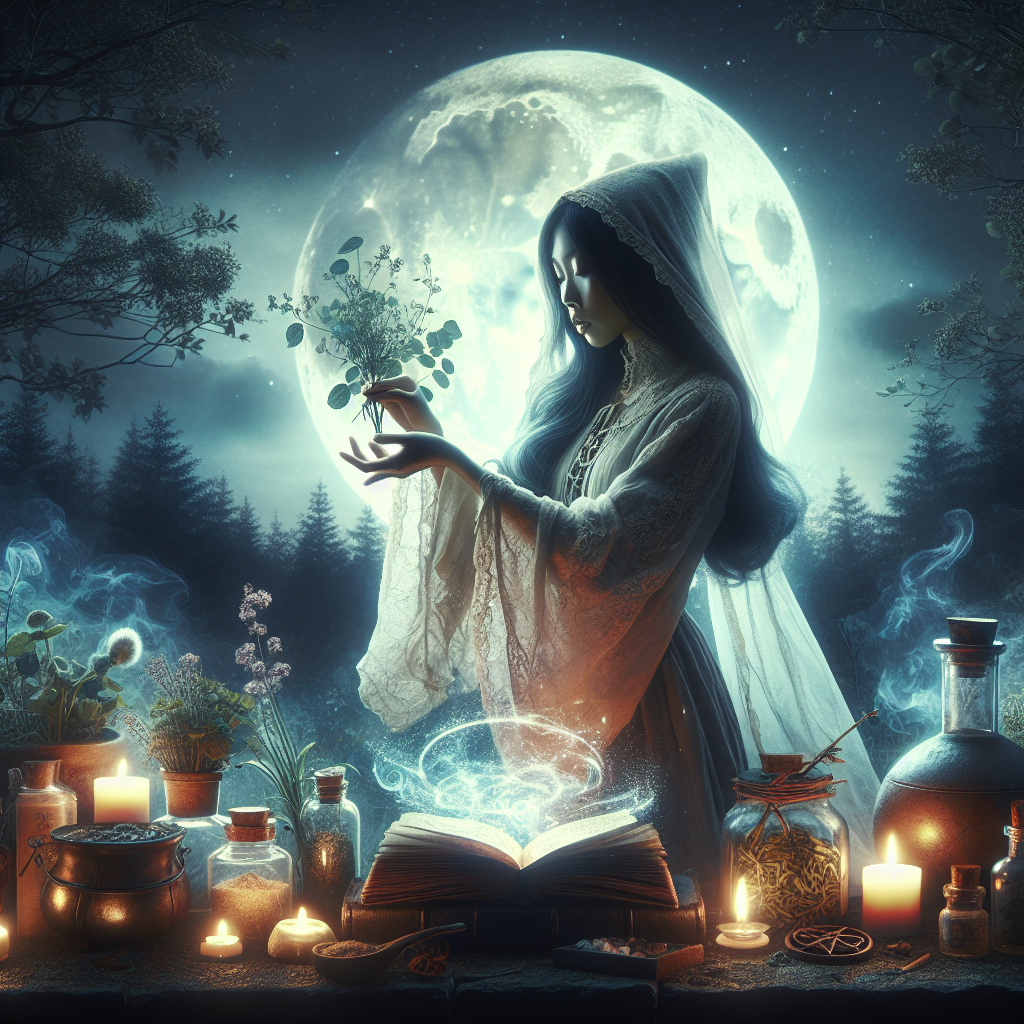Witchcraft Journey: A Comprehensive Introduction to Natural Religion
introduce
Wicca is a modern, nature-based religion that draws on ancient beliefs, customs, and traditions. It is a spiritual path that respects the earth and its cycles, and encourages its practitioners to connect with the natural world around them. Wicca is a diverse and inclusive religion that focuses on personal spiritual growth and empowerment. This article provides a comprehensive introduction to Wicca, exploring its history, beliefs, practices, and FAQs for those interested in learning more about this fascinating and misunderstood religion.
History of Wicca
Wicca is a relatively modern religion with roots dating back to the early 20th century. The father of modern witchcraft is often considered to be Gerald Gardner, a British civil servant who brought together various elements of pagan and esoteric traditions to create what we now know as witchcraft. Gardner published several books on the subject, including Witchcraft Today and The Meaning of Witchcraft, which helped popularize witchcraft in the 1950s and 1960s.
Wicca draws on ancient pagan beliefs and practices, including the worship of nature, respect for the divine feminine, and the celebration of seasonal festivals. Many Wiccan rituals and symbols can be traced back to ancient traditions, such as the use of pentagrams, the casting of circles, and the practice of invoking the elements.
witchcraft beliefs
Wicca is a decentralized religion with no central authority or dogma. Wiccan people may have a wide range of beliefs, but some common themes include:
1. Polytheism: Wiccan believe in a variety of gods, often including gods and goddesses who represent the male and female aspects of divinity. These gods can be seen as symbolic archetypes or as real beings with whom Wiccan can communicate.
2. Nature worship: Wiccan people have a deep reverence for the earth and its natural cycles. Many rituals and celebrations revolve around the changing of the seasons, the phases of the moon, and the cycle of life and death.
3. Magic: Wiccan people often practice magic to express their intentions and connect with the divine. Magic in Wicca is viewed as a natural and neutral force that can be used for positive purposes such as healing, protection, and personal transformation.
4. Ethics: Wiccan adhere to a code of ethics known as “Wiccan Red,” which states: “Do whatever you want as long as it doesn’t hurt anyone.” This principle emphasizes personal responsibility , and encourages practitioners to carefully consider the consequences of their actions.
The practice of Wicca
Wicca is a religion of action whose rituals, rituals, and practices are designed to help practitioners connect with the divine and align with the natural world. Some common Wicca practices include:
1. Rituals: Wiccan people often perform rituals to honor their gods, commemorate the changing of the seasons, or celebrate significant life events. These rituals often involve casting circles, summoning the elements, and using symbolic tools such as candles, incense, and artemes.
2. Sabbaths: Wiccan celebrate eight seasonal festivals called “Sabbaths,” which mark the solstices, equinoxes, and points in between. These festivals include Samhain, Yule, Imbolc, Ostara, Beltane, Litha, Lammas and Mabon, each with its own traditions and symbolism.
3. Esbats: Wiccan also observe Esbats, which are monthly rituals performed during the full moon. These rituals may involve meditation, divination, incantations, and offerings to the gods.
4. Magic: Witchcraft is closely related to the practice of magic, which is seen as a transformative force of nature. Wiccan cast spells, incantations, and rituals to express their wishes, heal themselves or others, and deepen their spiritual practice.
FAQs about Wika Guesthouse
Q: Is witchcraft the same as witchcraft?
Answer: Although witchcraft and witchcraft are closely related, they are not the same thing. Wicca is a specific religious tradition that practices witchcraft as a spiritual practice, but not all practitioners of witchcraft are Wiccan.
Q: Do Wiccan worship the devil?
Answer: No, Wiccan do not worship the devil or any evil entity. Wicca is a nature-based religion that respects the earth and its cycles, and its adherents do not believe in the concept of devils or hell.
Q: Can anyone become a Wiccan?
Answer: Yes, anyone can become a Wiccan, regardless of their background or beliefs. Wicca is an inclusive religion that welcomes people of all ages, genders, sexual orientations, and cultural backgrounds.
Q: Do Wiccan cast spells to harm others?
Answer: No, Wiccan adhere to the moral principles of Wicca, which states: “Do whatever you want as long as it doesn’t hurt anyone.” Wiccan believe in the power of intention and do not use magic to harm others.
In summary, Wicca is a nature-based religion that respects the earth, celebrates the cycle of seasons, and encourages personal growth and empowerment. Derived from ancient pagan traditions, Wicca emphasizes magic and ritual, providing a rich and fulfilling spiritual path for those drawn to its teachings. Whether you are a beginner or an experienced practitioner, exploring witchcraft can be a rewarding journey of self-discovery and connection with the natural world.
